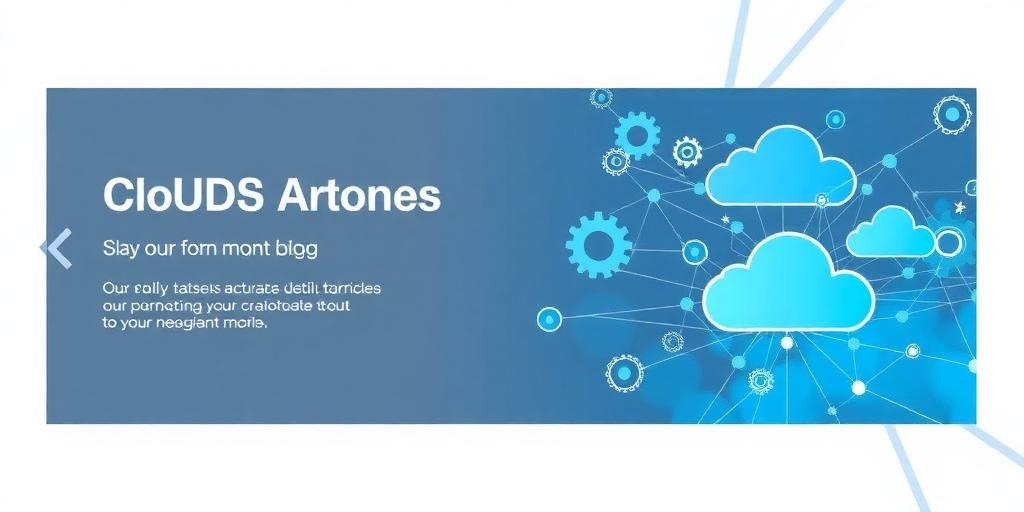In the rapidly evolving landscape of cloud computing, efficiency and scalability are paramount. As organizations increasingly migrate their infrastructures and applications to the cloud, manual management becomes untenable, leading to bottlenecks, human error, and spiraling operational costs. This is where cloud automation tools emerge as indispensable assets. By automating routine tasks, resource provisioning, security policies, and application deployment, these solutions empower businesses to achieve unprecedented levels of agility, consistency, and cost-effectiveness. This authoritative guide delves into the top 10 cloud automation tools that are pivotal in transforming modern cloud operations.
The Imperative of Cloud Automation
Cloud automation is not merely a convenience; it is a strategic necessity. It provides the framework for managing complex, dynamic cloud environments by replacing repetitive manual processes with automated workflows. This significantly reduces the likelihood of configuration drift, enhances compliance, and frees up valuable engineering resources to focus on innovation rather than maintenance. The benefits extend across the entire IT lifecycle, from development and testing to deployment and operations.
Top 10 Cloud Automation Tools
Here are ten leading cloud automation solutions that stand out for their robust capabilities and widespread adoption:
1. Terraform by HashiCorp
Terraform is an industry-leading Infrastructure as Code (IaC) tool that allows users to define and provision datacenter infrastructure using a declarative configuration language. It supports a vast ecosystem of cloud providers (AWS, Azure, Google Cloud, etc.) and on-premises solutions, enabling consistent, repeatable deployments. Its state management capabilities ensure that infrastructure remains aligned with defined configurations, making it a cornerstone for automated cloud infrastructure management.
2. Ansible by Red Hat
Ansible is an agentless automation engine that excels in configuration management, application deployment, orchestration, and provisioning. Its simplicity, relying on SSH for communication, and its use of YAML for playbooks make it highly accessible and powerful. Ansible can automate tasks across servers, networks, and cloud environments, making it a versatile tool for DevOps automation in the cloud.
3. AWS CloudFormation
For organizations heavily invested in the Amazon Web Services (AWS) ecosystem, CloudFormation provides a native IaC service to model and provision AWS resources. It allows users to define templates for entire cloud environments, including compute, storage, networking, and security resources. CloudFormation ensures resource dependencies are managed correctly and facilitates easy updating and rollback of stacks, streamlining AWS cloud operations.
4. Azure Resource Manager (ARM) Templates
Similar to AWS CloudFormation, ARM Templates are the native IaC solution for Microsoft Azure. They enable users to define Azure infrastructure and services in a declarative JSON format. ARM Templates facilitate consistent deployment of resources, managing dependencies, and ensuring that deployments adhere to corporate standards, crucial for automated Azure infrastructure.
5. Google Cloud Deployment Manager
Google Cloud Deployment Manager is Google Cloud's native IaC service, allowing users to specify all the resources needed for an application in a declarative configuration written in YAML. It supports custom templates and configurations, enabling robust and repeatable deployments across the Google Cloud Platform, thus simplifying cloud orchestration for GCP users.
6. Kubernetes
While primarily known as a container orchestration platform, Kubernetes plays a critical role in cloud automation by automating the deployment, scaling, and management of containerized applications. It abstracts away underlying infrastructure, providing self-healing, load balancing, and automated rollouts/rollbacks, making it indispensable for modern, automated cloud deployments.
7. Jenkins
Jenkins is an open-source automation server that supports the automation of various tasks involved in continuous integration and continuous delivery (CI/CD). It integrates seamlessly with numerous cloud providers and development tools, enabling automated build, test, and deployment pipelines. This makes Jenkins a pivotal tool for automating the software delivery lifecycle within cloud environments.
8. Chef
Chef is a powerful configuration management tool that uses Ruby-based









